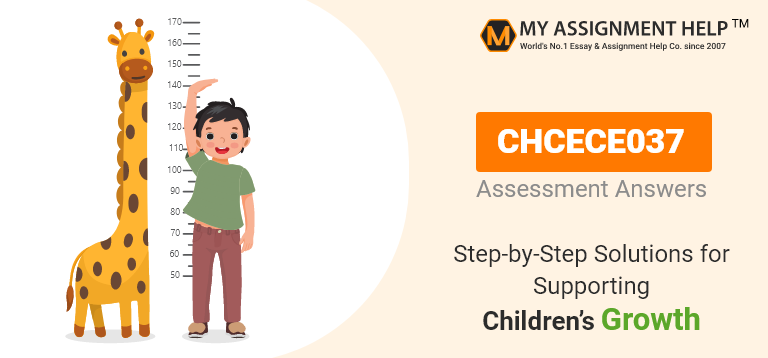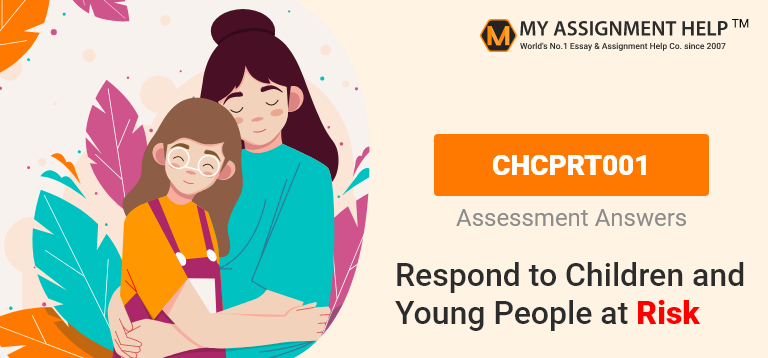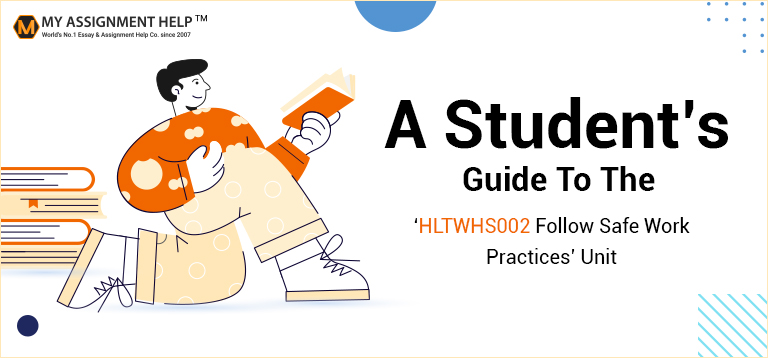A Comprehensive Guide to CHCECE037 Assessment Answers

Introduction of CHCECE037 Assessment
The CHCECE037 assessment focuses on analysing an individual’s ability to help students connect with nature. The process of evaluation includes:
- Practical observations
- CHCECE037 assessment answers
- Multiple choice questions
- Case studies
- Projects
- Short answers
- Vocational placement
According to the standard guidelines, the assessment should be done in a regulated educational centre in Australia where the assessor is required to monitor and assess how a child is engaging with nature. S/he can also collect assessment reports from third parties as long as they are supplemented with the accepted form of evidence. Furthermore, all interactions of any kind have to be supervised by an approved educator.
The unit, CHCECE037, supports children to connect with the natural environment and has three primary objectives:
- To help children develop respect and love for the natural environment
- To develop an understanding and appreciation for nature
- To build children’s engagement with the environment
The CHCECE037 unit covers many topics, highlighting the factors that build a connection with the natural environment. Some of them are:
- Interacting with children
- Natural environment
- Communicating with children
- Children development
- Building relationships with children
- Interacting with plants and animals
It’s important for children to connect with nature to become more creative, healthier, happier, and less aggressive. Playing games outside, playing with soil, and using relevant books and resources are necessary for developing a connection with the natural environment. Hence, many notable institutions in Australia, such as TAFE NSW, Victoria University, Melbourne Polytechnic, TAFE Queensland, and the Institute of Health and Nursing Australia, have started short-term courses related to early childhood education and care.
Studying the CHCECE037 RTO materials will help learners get a deep comprehension of the current industry practices and various instructional design principles. Keep reading to learn more about the unit, challenges students face with CHCECE037 assessment answers, and ways to excel in the assessment.
What Is the CHCECE037 Support Children to Connect with the Natural Environment Unit?
The CHCECE037 unit suggests the skills, outcomes, and knowledge required for supporting and building children’s connection with the environment. The skills necessary for the unit are suggested to be applied by following the standards of Australian codes of practice and Commonwealth and State/Territory legislation. Let’s take a look at the key elements and performance criteria of the assessment:
| Elements (Describes the mandatory outcomes) | Performance Criteria (Describes the performance needed for achieving the elements) |
| Helping Children to Understand the Natural Environment | Identifying and using opportunities for explaining to children the importance of nature and the interdependence between plants, animals, humans, and the land. Instilling the feeling of care, respect and appreciation for natural as well as constructed environments. Providing children with CHCECE037 materials, resources, and information about nature and the impact of different activities on the environment. Identifying Torres Strait Islander and Aboriginal people’s connection with the natural world |
| Assisting Children in Developing Appreciation and Love for Nature | Encouraging the use of natural or recycled materials in learning environments as per the service policies, procedures and other norms of specific experiences Giving individuals the opportunity to explore and expand their understanding of both natural and constructed environments and their local communities. |
| Improving Children’s Engagement with the Environment | Identifying opportunities for children to minimise negative impacts on nature Supporting individuals in demonstrating their care and respect for the environment Helping and giving children the opportunities to experience living things’ growth and care |
The following skill sets are crucial in order to excel in the unit:
Oral Communication Skills
- To interact, engage and build rapport
- To improve skills through participating in open-ended questions and answers
Initiative and Enterprise Skills
- To identify credible mediums for relevant information about nature
Technology Skills
- To research and gather pertinent data and facts about the natural environment by leveraging digital media platforms
Furthermore, the CHCECE037 assessment answers and CHCECE037 resources help to develop the necessary knowledge of the
- Requirements of the National Quality Standard and the relevant laws and norms applicable for relationships with individuals and the physical environment
- Significance of the natural environment in context to an individual’s education about plants, insects, landscapes, animals, and Aboriginal and Torres Strait Islander people
- The role nature plays in child development, improving physical and mental health, enhancing social and emotional learning, and implying non-exposure to the natural environment
- Ways to train and encourage individuals to care for and respect nature through practical routines and play and learning experiences
- Service procedures, policies, and standards for building relationships with individuals and the physical environment
Important Assessment Requirements in Experience Plan Examples Childcare
Performance Evidence
It’s crucial to provide evidence for being able to complete the tasks stated in the performance criteria above and support student’s knowledge and comprehension of the environment and people’s use of the environment. The evidence must also include evidence of encouraging students in two conditions to engage positively with nature through indoor and outdoor activity.
Knowledge Evidence
It’s imperative to demonstrate the required knowledge for completing the tasks outlined in the performance criteria and elements section. As stated earlier, an individual must showcase a thorough understanding of the National Quality Standard and related laws and regulations, the role of nature, the benefits of the natural environment, ways to encourage individuals to become caring and respectful towards the natural environment, and the knowledge of standard service-related procedures and policies.
Assessment Conditions
Skills suggested in the unit are mandatory to demonstrate in a regulated academic service in Australia through activities that allow individuals to engage with nature. Evidence of all activities must be directly observed by the assessor at least on one occasion, while the remaining evidence could be collected from third parties based on their observation or other forms of evidence. Finally, the assessment must provide proper access to the following:
- National Quality Framework: National Quality Standard and the relevant learning framework
- Service standards, policies and procedures
- Properly regulated education and care services in Australia.
Note that all assessors must adhere to the Standards for Registered Training Organisations’ requirements to become eligible for the job role.
Challenges Students Face in CHCECE037 Answers
When writing the CHCECE037 assessment answers PDF, each student faces unique challenges. For example, some might not have access to CHCECE037 resources related to experience plan examples of childcare. In contrast, others might struggle to understand the guidelines to complete their CHCECE037 assessment answers on natural and recycled materials in childcare within the due date. In this section, we will discuss and delve into the common hardships students generally encounter with CHCECE037 materials and homework tasks so you can be best prepared.
- Not Understanding the Instructions
The common problem with writing assessment answers is the lack of instructions. They either lack proper directions and instructions or cannot get their heads around the guidelines.
- Inadequate Writing Experience
This unit is an important aspect of child care and community service. However, a lot of students are new to this course and lack a clear idea of writing CHCECE037 assessment answers, which reflects on their writing quality.
- Absence of Resources
Most assessments are based on careful analysis. Sadly, students lack strong assessment skills at such an early stage of their careers and rely upon online resources and case studies on topics like natural and recycled materials in childcare to develop their answers. The common issue with free resources is that not all sources follow the writing guidelines accurately, and the answer formats could be misleading.
- Poor Time Management
Student life is hectic, and there’s sugarcoating it. And one factor that makes things difficult is their poor planning and schedule management. Since a lot of them are unfamiliar with the nature of the task they tend to procrastinate and delay their work until the last minute, thus making it difficult to complete their CHCECE037 assessment answers.
Other challenges with writing assessment answers include:
- Technical difficulties
- Delay in uploading questions and images
- Unfamiliarity with answering subjective-type questions
- The paucity of time to plan and practice
- Time-consuming writing sessions
- Learning gap and requires personalised attention
Sample CHCECE037 Assessment Answers
Task 1: Workplace Observation Assessment
Managers and supervisors conduct workplace observation assessments to evaluate employee performance, identify weaknesses and strengths, and provide constructive feedback. Companies use this method to understand the internal functioning of the company.
The primary motive of this test is to observe an employee’s ability to understand and assess different work procedures and demonstrations based on their answers in real-life scenarios. Perhaps it provides an objective and realistic view of an employee’s ability to understand how different people communicate, what behaviours bring positive outcomes and what brings punishments.
Unlike multiple-choice testing, observation assessments aim to give first-hand details of an employee’s work performance and their practical and interpersonal skills. Additionally, employees also use test methods like the following to evaluate specific performance:
- Projects and assignments
- Portfolios
- Questions and demonstrations
- Simulation exercises and role-play
- Skill tests
- In-basket exercises
- Trainability tests
Here’s how companies typically carry out workplace observation assessments.
- Conduct a detailed survey on employee occupancy and behaviour
- Run a storage audit and develop a conversion/reduction plan
- Analyse the reports of the assessment and highlight key areas of improvement
- Review corporate policies or changes and draft a new plan based on the formal and informal forms of observations
You can check sample workplace assessment tasks to get a clear idea of observation tools and types of assessment questions.
Task 2: Supporting Children’s Connection with Nature
The typical ways of making children appreciate nature are the following:
- Playing nature bingo
- Going on a nature scavenger hunt
- Making creative art projects using things like twigs, pebbles, flowers, and various waste resources, such as an empty trash box
- Doing fun science experiments, like creating a model ocean to learn about pollution or making a solar-powered oven
- Gardening, camping, and teaching about plants and animals
- Teaching to treat animals gently and develop a sense of respect and empathy towards nature
Let’s take a look at an assessment task focusing on “Indoor Play Experience.”
Setting: Indoor
Date/s of implementation: 7/9/24
The number of children’s play experiences is intended for – 2-5
Social play stage supported:
Parallel
Associative
Solitary
Cooperative
Supports:
Creativity
Imagination
Dramatic Play
Name of experience:
Plants
(All experiences should include Torres Strait Islander and/or Aboriginal perspectives)
Age group:
0-2 years
2-3 years
3-4 years
Question 1: Material/ space/equipment required:
Craft paper, paper, popsicle sticks, and glue. Students can go outside to collect natural materials that they like and wish to craft with. For example, pine cones, leaves, sticks, sand, seeds, sticks, small stones, etc.
Question 2: Pre-Planning – How to ensure the experience improves children’s understanding?
The assessor will use the student’s interest in crafting using natural materials for building their current knowledge. Furthermore, s/he will elaborate on their observations and educator’s recommendations to improve their present learning.
Question 3: How to improve learning using natural materials?
When collecting materials from outside, one can use it as a great chance to explain to kids what they can play with, what they cannot, what can be touched, what should not be touched, and why. This is certainly a great opportunity for bonding and teaching students the importance of going outside and getting familiar with the natural environment.
Question 4: How will the recycled materials be utilised?
Recycled materials such as popsicle sticks, crafting paper, empty tissue boxes, and cardboard can be brought from home for art and craft work.
Question 5: What is the learning goal of the task?
The assessor will encourage students to connect with the outside world and understand the ways of nature and the best ways to use natural materials to develop a connection to the natural setting. Students, on the other hand, will become more aware of their surroundings and understand the impact of using natural resources on the natural environment. For instance, explaining to students the impact of plucking flowers or breaking branches from the trees instead of picking the fallen ones will improve their understanding of nature and strengthen their relationship with nature.
Question 6: Identify the developmental domains that the play experience supports (a max of two domains)
The play experience will support two domains –
- Physical development or fine motor movements as the students will use tools like scissors to cut papers
- Cognitive development as the students will use different objects to construct things that resonate with their imagination
Question 7: What are the learning outcomes applicable to this play experience?
The play experience improves children’s learning through interactions, using natural and processed materials, and develops dispositions such as confidence, curiosity, imagination, reflexivity, persistence, enthusiasm, commitment, creativity and cooperation. Furthermore, students learn about pattern systems and symbols and their uses and begin to draw connections.
Question 8: Which National Quality Standard/s relates to this experience?
- Element 1.1.2. – Child-centred as each child’s strengths, ideas, culture, abilities, and knowledge are the program’s foundation.
- Element 1.3 – Children become knowledgeable and develop self-identities
- Element 2.2 – Children are respectful towards diversity
- Element 3.1 – Children develop strong social and mental wellbeing
- Element 3.2.3 – Children become environmentally responsible
- Element 4.1 – Children gain dispositions for learning
- Element 5.2.1 – Collaborative learning and teamwork
- Element 5.4 – Children understand how patterns and symbols work
Question 9: How will the assessor explain to children the impact of their experiences on nature?
It’s important to discuss the effects of breaking branches or removing leaves directly from the trees on the ecosystem. The assessor will also highlight the importance of developing environmental consciousness.
Question 10: How will the assessor discuss the interdependence between the land, humans, animals, and plants and their impact on nature?
The assessor will discuss what sustainability is and how animals, plants, people, and the land are interconnected and interdependent to function correctly. S/he will also explain different environmental issues and the values nature holds with relevant examples.
Question 11: How will the assessor be a role model?
In order to create environmental awareness, it is important to discuss the implications of removing leaves and the significance of gathering the already fallen ones. The assessor will explain instances of how to care for the land and respect nature and regional traditions.
Question 12: How to include Torres Strait Islander or Aboriginal people’s viewpoints?
The ideal way to incorporate their perspectives is to establish connections between the ecosystem, country, wildlife, and the local flora. Discussing different beliefs and rituals will create a strong idea of the kinship nature holds. This will also improve the knowledge of using natural resources more smartly.
Question 13: How will the assessor encourage natural environment exploration?
With the interpretation of the play experience, children will get to experience their natural surroundings and learn to make sustainable use of natural resources. They will also learn about the human impact and the consequences of not preserving nature.
Question 14: How will the assessor promote the growth and care of plants?
During the nature walk, if any student finds a flower with a seed or a plant with exposed roots, the assessor would show how to plant it and ensure it gets enough light and water.
Question 15: How will the assessor encourage students to reduce their impact on nature?
The assessor will encourage students to explore nature and explain with fun examples the ways to become more sustainable and reduce human impact.
Finally, the assessment will end with the assessor’s perspectives on what the children did, how they implemented what they were taught, their reaction to the implications, and how they liked the play experience.
Tips for Successfully Completing Answers on Natural and Recycled Materials in Childcare
Writing effective CHCECE037 assessment answers PDF can become less strenuous when you have the right tricks up your sleeves. Hence, if you are new to the course and need some useful tricks to complete your work on time, the following tips might come in handy.
- Plan your answer – Don’t just start scribbling as soon as you receive the task. Instead, read the question carefully and create an outline to organise your points.
- Take notes – It’s easy to skip points when you are creating the assessment report. Think of the answers you want to construct and make note of the key points.
- Review assessor guides – In order to create impressive answers, it’s crucial that you know what the assessor expects of you. Read the assessor guides, assessment workbooks, learner guides, and assessment mapping documents to get a clear understanding of the assessor instructions, benchmarks, competency records and mapping notes.
- Start early – Like other academic assignments, CHCECE037 assessment questions also demand time and proper planning. You will fail to meet the objective of the paper or meet the required standards with your answer if you leave your task until the last minute. Instead, consult a mentor and resolve your doubts at the earliest so you can complete your work minus the last-minute pressure.
Check Useful Resources
Listed below are a few resourceful sites that you can refer to for CHCECE037-related help. Check them out!
- VetNet by the Australian Government
Check these Companion Volume implementation guides by VETNet for details about community services and training packages.
https://vetnet.gov.au/Pages/TrainingDocs.aspx?q=5e0c25cc-3d9d-4b43-80d3-bd22cc4f1e53
- Federal Energy Management Program
Improve your skills for writing effective assessment answers by referring to suggestions made in this guide.
https://www.energy.gov/sites/default/files/2024-05/femp-training_writing-assessment-questions.pdf
- National Quality Framework by the Australian Government
Refer to this guide on approved learning frameworks to gain extensive insights into improving children’s learning.
https://www.acecqa.gov.au/nqf/national-law-regulations/approved-learning-frameworks
- Australian Children’s Education and Care Quality Authority
Explore the latest updates and guidelines of the National Quality Framework and the Approved Learning Frameworks.
- National Quality Framework (NQF)
Refer to this guide to understand A-Z of the National Quality Framework.
https://www.vic.gov.au/national-quality-framework
Conclusion
The CHCECE037 assessment is crucial for evaluating children’s ability to connect with the natural environment. Students pursuing the course have to work on different types of evaluations to demonstrate their knowledge and skills in this domain. Unfortunately, the complexity of the course often challenges students’ learning abilities and requires them to seek assessment help in Australia. And that’s where professional mentors come into the picture.H2: How MyAssignmentHelp.expert Can Assist Students with CHCECE037?
MyAssignmentHelp.expert is a pioneer in the industry for assisting thousands of students with world-class academic facilities and personalised assignment help and exam help at all study levels. The mentors are PhD-qualified and possess extensive industry experience. Under their guidance, you can excel in the course and build crucial academics. Subscribe to the site to get timely updates on the latest blogs, offers, workshops, and more.
Check Out Related Course Codes:
CHCCCS011 Meet Personal Support Needs
CHCCOM005 Overview: Health & Community Services Communication
HLTINF001 Overview: Infection Prevention & Control Compliance
Frequently Asked Questions CHCECE037 Assessment
Q.1. How to prepare for practical observation?
Here are some tips for writing practical observations:
- Start with a clear heading
- Provide relevant context
- Structure your observations systematically
- Include raw data
- Make a clear distinction between observations and interpretations
- Be objective
- Ask for peer feedback
Q.2. How can I find reliable answers for CHCECE037 assessments?
You can find quality answers related to CHCECE037 questions by consulting the experts of MyAssignmentHelp.expert. The mentors are highly knowledgeable and trained and have the necessary resources to create impactful answers from the top.
Q.3. What types of tasks are included in the CHCECE037 assessment?
Typically, CHCECE037 assessment includes:
- Activity planning
- Observation and documentation
- Cultural awareness
- Theoretical understanding
- Practical implementation
- Reflection and analysis
- Portfolios
- Case studies
- Practical demonstrations
Q.4. What are the key skills required to excel in CHCECE037?
The critical skills necessary for excelling in this course are:
- Communication
- Patience
- Creativity
- Enthusiasm
- Behavioural management
- Dedication
Q.5. How do I approach creating a child development plan for CHCECE037?
In order to create a child development plan, always focus on activities where children learn by doing. Give enough time to children to explore, engage, and revisit their interests. Make children curious about learning by incorporating more activities that challenge them to expand their thinking and build their problem-solving skills.






